Florian Rappl
Building a Compiler with C#
#1about 4 minutes
Understanding the Roslyn compiler platform for C#
Roslyn is more than a black-box compiler, providing rich language service APIs that power IDE features like refactoring and code analysis.
#2about 2 minutes
Exploring C# code with Roslyn and LINQPad
Use a tool like LINQPad to see how Roslyn transforms C# source code into intermediate language (IL) and visualizes it as a syntax tree.
#3about 4 minutes
The motivation for building a custom language
A custom, high-performance language was needed to power a game that dynamically generates worlds from user-defined mathematical formulas.
#4about 3 minutes
Defining a language with a formal grammar
Creating a new language starts with a formal specification or grammar that defines its syntax using symbols and rules.
#5about 3 minutes
How compilers transform source code into executables
Compilers translate source code into a machine-readable format, either directly into object files or into platform-independent bytecode for a virtual machine.
#6about 5 minutes
The core stages of parsing source code
The parsing process involves multiple stages, including stream processing, tokenization, abstract syntax tree (AST) generation, and semantic analysis.
#7about 6 minutes
Structuring code with an Abstract Syntax Tree
An Abstract Syntax Tree (AST) represents code structure using nodes for statements and expressions, respecting operator precedence.
#8about 3 minutes
Traversing the AST using the Visitor Pattern
The Visitor design pattern provides a robust and type-safe way to traverse an Abstract Syntax Tree for analysis or code generation.
#9about 3 minutes
A live demo of a custom language REPL
A simple Read-Eval-Print Loop (REPL) demonstrates the custom language's features, including function definitions, currying, and AST inspection.
#10about 2 minutes
Implementing operator precedence with Pratt parsing
Pratt parsing is a technique that uses recursive function calls to elegantly handle operator precedence climbing in a compiler.
#11about 4 minutes
Understanding virtual machines and intermediate language
Process virtual machines execute platform-independent bytecode, or intermediate language (IL), which provides a linear instruction set derived from the AST.
Related jobs
Jobs that call for the skills explored in this talk.
Senior Softwareentwickler (m/w/d)
PROSOZ Herten GmbH
Herten, Germany
Remote
€59-80K
Intermediate
Senior
.NET
C#
+3
Software Developer – Core API (f/m/d)
Dennemeyer Group
Hesperange, Luxembourg
Intermediate
Senior
.NET
Structured Query Language (SQL)
Senior Fullstack Engineer – Angular/.Net (f/m/d)
Apaleo
München, Germany
Remote
€65-85K
Senior
JavaScript
.NET
+2
Matching moments
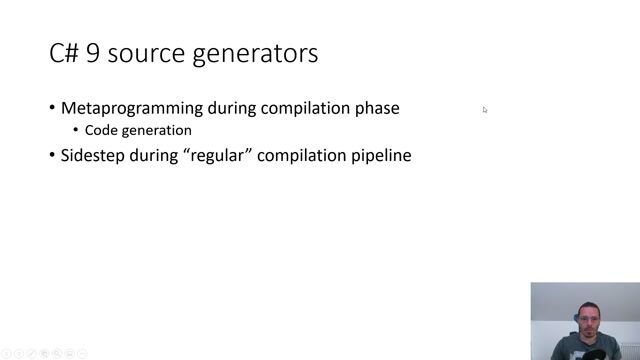
00:57 MIN
What are C# source generators and how they work
C# 9 Source Generators - let the machine do the programming
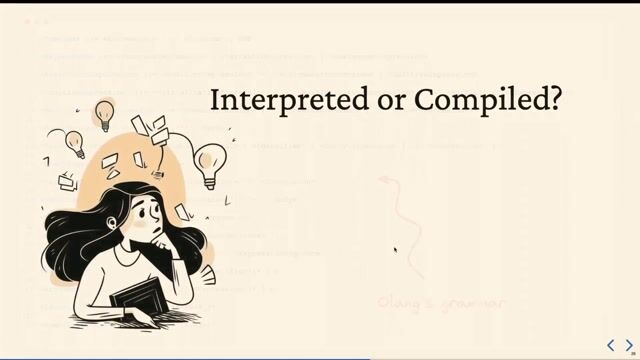
07:43 MIN
Distinguishing between interpreters and compilers
Making Sense of Programming Languages

00:04 MIN
The value of understanding language internals
Making Sense of Programming Languages
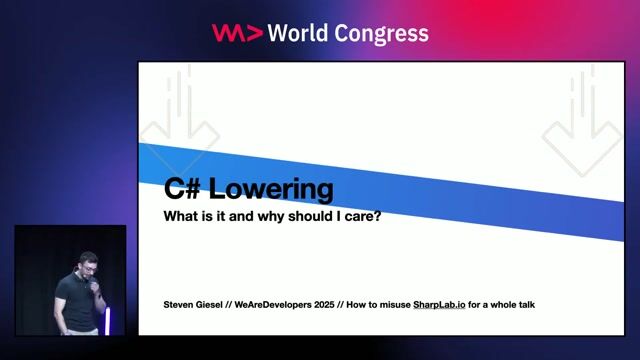
00:18 MIN
Defining C# lowering and its benefits
C# Lowering - What is it and why should I care?
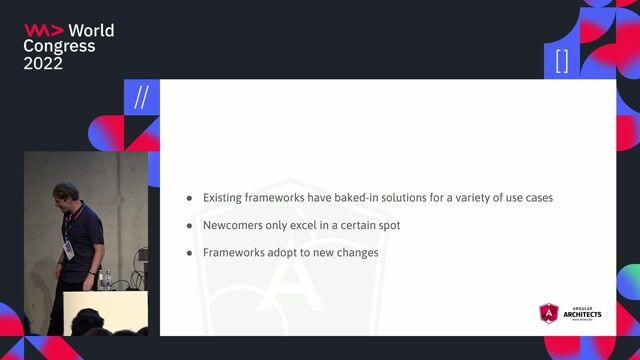
23:35 MIN
Q&A on compiler adoption and the move to full-stack
To New Frontiers: The Future of Frontend Development

45:21 MIN
Summary and key takeaways for source generators
C# 9 Source Generators - let the machine do the programming

00:25 MIN
A developer's journey through programming languages
Coffee with Developers - Martyn Kilbryde
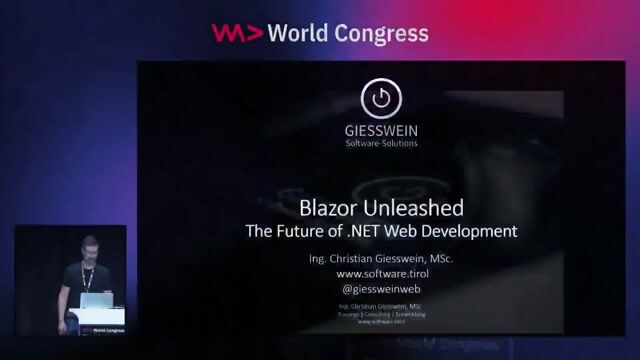
00:10 MIN
Why Blazor enables full-stack .NET development
Blazor Unleashed: The Future of .NET Web Development
Featured Partners
Related Videos
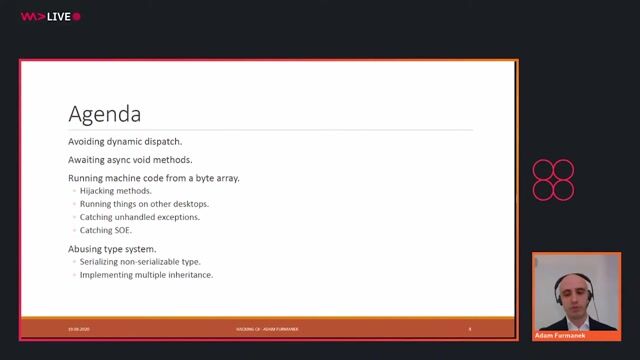 41:54
41:54Hacking C# from the inside - how to do anything in NET
Adam Furmanek
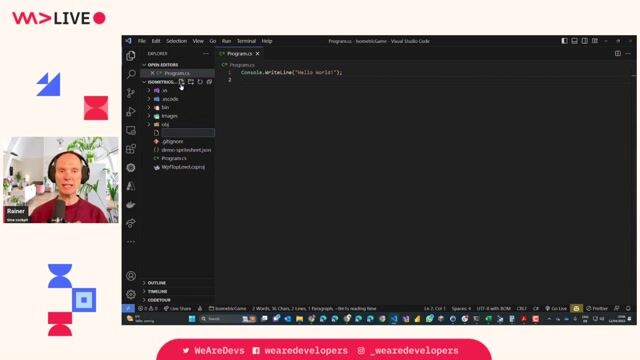 57:23
57:23Exploring the Latest Features of .NET and C# by Building a Game
Rainer Stropek
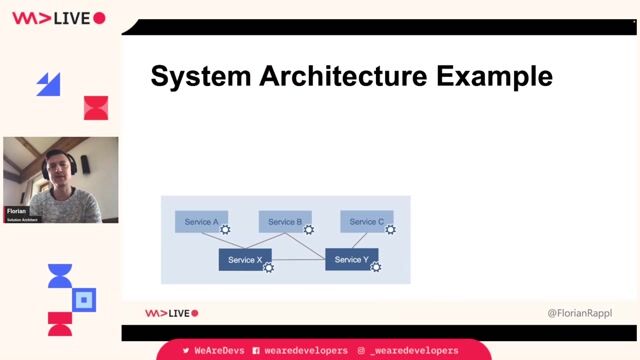 58:32
58:32Microfrontends with Blazor: Welcome to the Party!
Florian Rappl
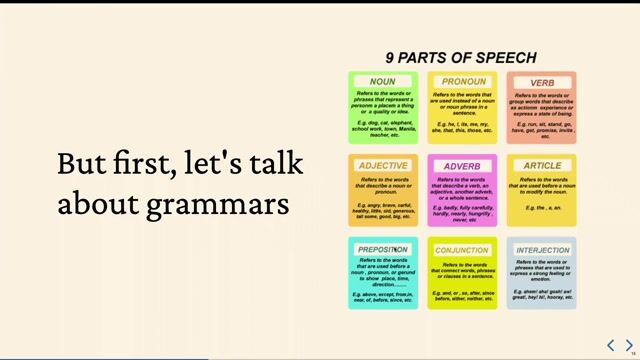 31:50
31:50Making Sense of Programming Languages
Aleksandra Sikora
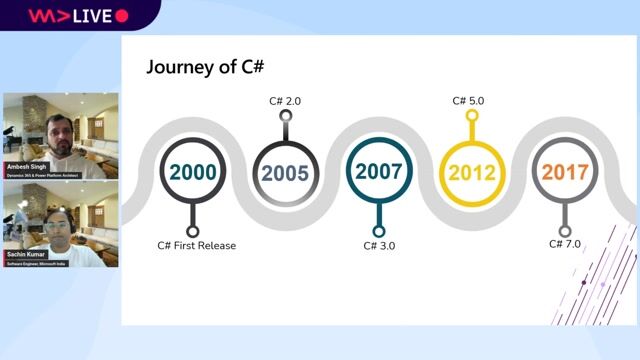 38:45
38:45C# 13 Unleashed: Live Demos of my Top 10 Cutting-Edge Features!
Ambesh Singh & Sachin Kumar
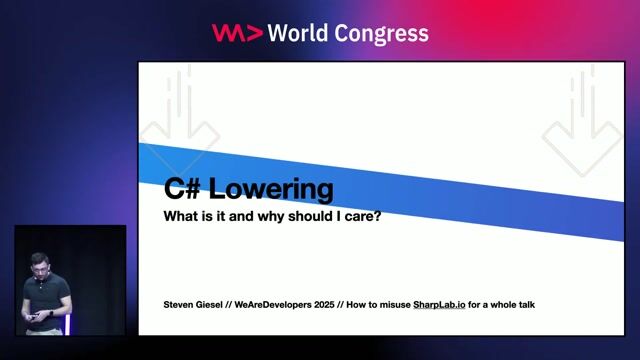 24:36
24:36C# Lowering - What is it and why should I care?
Steven Giesel
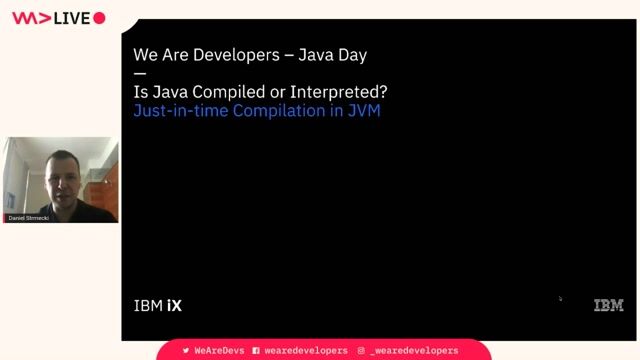 37:45
37:45Just-in-time Compilation in JVM
Daniel Strmečki
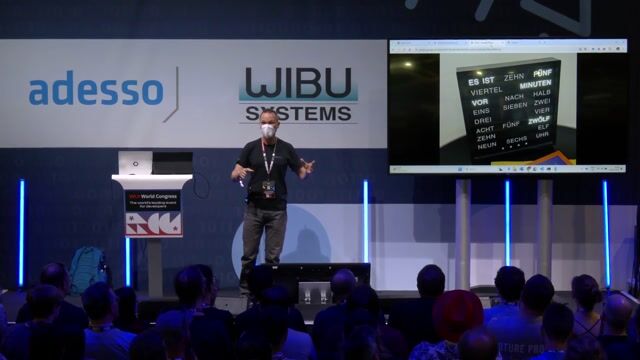 31:39
31:39Livecoding with AI
Rainer Stropek
Related Articles
View all articles



From learning to earning
Jobs that call for the skills explored in this talk.

Software Development Engineer - LLVM Compiler
Advanced Micro Devices
Bristol, United Kingdom
API
C++
Linux








Fullstack-Developer .NET, C#, ASP.NET, React, TypeScript
Halvotec GmbH
Raubling, Germany
.NET
React
ASP.NET
TypeScript
Software Architecture